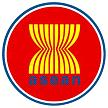 NEW YORK, 4 May 2015 – A total of 18 regional organisations, including ASEAN, gathered in New York on May 1-2 to discuss ways to strengthen their cooperation with the United Nations (UN) on the global peace agenda.
NEW YORK, 4 May 2015 – A total of 18 regional organisations, including ASEAN, gathered in New York on May 1-2 to discuss ways to strengthen their cooperation with the United Nations (UN) on the global peace agenda.
The two-day retreat, hosted by the United Nations Secretary-General (UNSG), H.E. Ban Ki-moon, focused on three major areas of mediation, peace-building and peace operations. The UNSG highlighted the importance of the partnership between the world body and regional organisations as a defining feature of today’s peace and security landscape. “This collaboration lies at the heart of solutions and is growing even more important in this fast-changing world of rising threats,” the UNSG said.
In his remarks, Secretary-General of ASEAN, H.E. Le Luong Minh, underscored that building and preserving peace has been the raison d’être and a major contribution by ASEAN to the Southeast Asian region. He reaffirmed that ASEAN has been a longstanding partner for peace with the UN for decades. Such partnership is clearly outlined in the 2011 Joint Declaration on the ASEAN-UN Comprehensive Partnership.
In sharing his perspectives, Secretary-General Minh proposed that cooperation between the UN and ASEAN should focus on three key areas, namely upholding the rule of law, strengthening regional organisations both on mandates and capacities, and sharing experiences and best practices. Secretary-General Minh welcomed the offer of the UN to support the ASEAN Institute for Peace and Reconciliation (AIPR), especially in pooling of expertise to assist ASEAN in peace and reconciliation activities and in documenting best practices and lessons-learned from regional peace processes.
Further, Secretary-General Minh said that peace is a constant work that needs to be nurtured, and in order to consolidate durable peace, post-conflict peace-building must be an inclusive, comprehensive and transformational process. Therefore, he added, implementation of peace agreements should embrace a broader security concept with the inclusion of socio-economic and development programmes, equitable and inclusive growth, social justice and good governance, as well as tolerance and moderation.
In wrapping up, Secretary-General Ban Ki-moon stressed the need to leverage upon the comparative advantages of regional organisations and strengthen strategic coordination with the UN, especially in early stages of a crisis. He particularly highlighted that sustaining peace is a national, regional and global action, requiring a truly integrated and multi-dimensional approach that cuts across security, socio-economic development and human rights. He also underlined the need to renew global partnership for peace operations, especially cooperation between the UN’s peace-keeping operations and regional partners.
